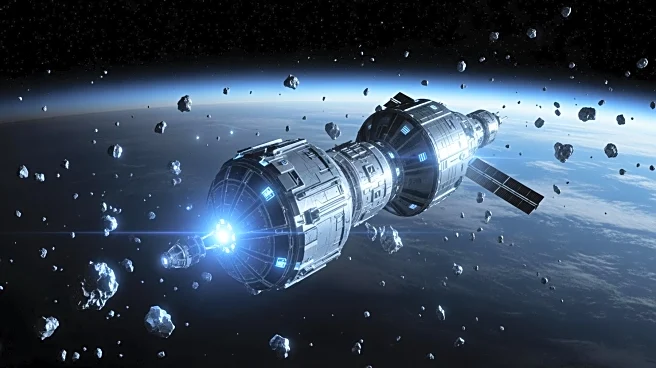What's Happening?
Three Chinese astronauts aboard the Tiangong space station are currently stranded due to damage to their return capsule caused by space debris. The Shenzhou-20 spacecraft, which was supposed to bring them back to Earth, remains attached to the station as engineers
assess the damage. The Chinese space agency has not disclosed the extent of the damage or whether it occurred during flight or while docked. In response, officials have instructed the astronauts to stay on the station while troubleshooting efforts continue. If repairs are not feasible, the Shenzhou-21 capsule, also docked at the station, may be used for their return, with a backup Shenzhou craft potentially being sent for the Shenzhou-20 crew.
Why It's Important?
This incident highlights the growing threat of space debris to manned space missions. As more satellites and spacecraft are launched, the risk of collisions with debris increases, posing significant safety challenges. The situation underscores the need for international cooperation in managing space debris and developing technologies to mitigate its impact. The delay in the astronauts' return could affect China's space program timelines and resource allocation. It also serves as a reminder of the vulnerabilities faced by space missions, prompting discussions on enhancing safety protocols and debris tracking systems.
What's Next?
The immediate focus will be on assessing the damage to the Shenzhou-20 capsule and determining the feasibility of repairs. If repairs are not possible, the Shenzhou-21 capsule will be prepared for the astronauts' return. Meanwhile, China may accelerate efforts to develop and implement debris mitigation strategies. The incident could also lead to increased collaboration with other space-faring nations to address the broader issue of space debris management.
















